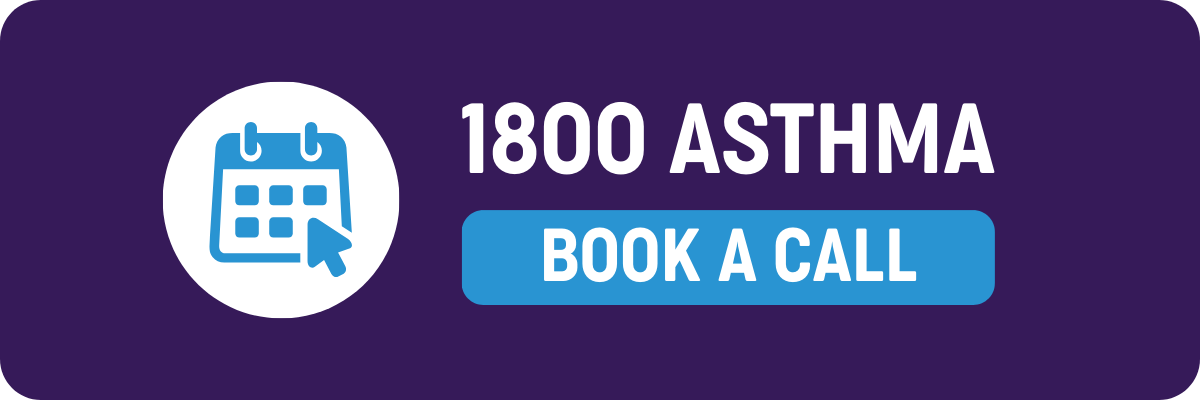Asthma symptoms in kids
Asthma symptoms in kids can be hard to spot. Kids have much smaller airways (breathing tubes) than adults. This means even small changes to how their airways work can make a big difference to their breathing.
Kids can’t always tell you their symptoms or recognise them as asthma. Knowing what symptoms to look for can help you and your doctor decide on the right course of action for your child. Any sign that your child is having trouble breathing should result in a visit to the doctor. The symptoms will help your doctor understand your child’s condition and decide which treatment will be best for them. It’s important to tell your doctor about all your child’s symptoms, even if you feel like they are normal.
Like adults, they may not have all the symptoms, but some things to look out for include:
Being breathless or having trouble breathing
 Shortness of breath or having to work really hard to suck air in and blow it out.
Shortness of breath or having to work really hard to suck air in and blow it out.- They might be breathing faster than usual or making a new sound as they breathe. If you find it hard to tell, take a video of them breathing normally when they are well towhe compare to.
- They might be using their body to help them breathe. For example, raising their shoulders when they take a breath.
- They might get out of breath while playing or stay out of breath for longer than usual.
- They could start avoiding activities because they get breathless.
- They could be quieter or more irritable than usual.
- They could say they have a sore chest or tummy, because they use their tummy muscles to help them breathe more than adults.
More serious signs that your child is struggling to breathe and needs emergency help include:
- The soft area at the bottom of their throat (where it meets the chest) is sucking in and out during breathing.
- Their tummy is sucking in or pumping up and down.
- The muscles between the ribs are sucking in when they take a breath.
- Their lips are turning blue.
- They are unable to finish their sentences or eat because they are so breathless.
Wheezing
 A wheeze is a high-pitched whistling sound made by the airways when they are nar-rowing. It can sometimes be easy to hear, or your doctor may hear it as they listen to your child’s breathing using a stethoscope. A wheeze can be caused by several things, including asthma. However, not all children will have a wheeze with their asthma.
A wheeze is a high-pitched whistling sound made by the airways when they are nar-rowing. It can sometimes be easy to hear, or your doctor may hear it as they listen to your child’s breathing using a stethoscope. A wheeze can be caused by several things, including asthma. However, not all children will have a wheeze with their asthma.
A wheeze is more likely to be asthma if it’s:
- very frequent
- worse at night or early in the morning
- happens when your child doesn’t have a cold
- occurs in reaction to a trigger.
Coughing
Coughs in kids can be caused by many things – not only asthma. There are lots of different types of coughs. Sometimes coughing brings up mucus or phlegm. No matter how the cough sounds, talk to your doctor if your child has:
- an ongoing cough or one that won’t go away
- a cough that only occurs during the night or early morning
- a cough during sport or activity
- a cough when excited or laughing.
Chest Tightness
Kids might feel chest tightness when the airways are so narrow it is difficult to get the air in or out. This might make them feel like there is a heavy weight on their chest. Your child might say things like “I’m feeling sick” or “I have a sore tummy”.
The ‘What is asthma’ video from the Royal Children’s Hospital Melbourne shows real life examples of these symptoms and more. It is also available in Arabic, Chinese Simplified, Chinese Traditional and Vietnamese.
Asthma symptoms becoming ‘normal’?
Sometimes, you or your child might have asthma symptoms so often that you get used to these symptoms. It becomes the ‘new normal’ way of being or breath-ing. Start keeping a diary of how often the symptoms happen, and what helps them. Showing this to the doctor helps them understand what treatment your child may need.
Ignoring or putting up with symptoms can be dangerous.
If your child has trouble with recurring symptoms, talk with their doctor about how they can help.
Asthma Educators can answer your asthma questions
Book a FREE phone call at a time that works for you or call us direct on 1800ASTHMA (1800 278 462).
| Ignoring or putting up with symptoms can be dangerous.
If your child has trouble with recurring symptoms, talk with their doctor about how they can help. |






 Shortness of breath or having to work really hard to suck air in and blow it out.
Shortness of breath or having to work really hard to suck air in and blow it out.

